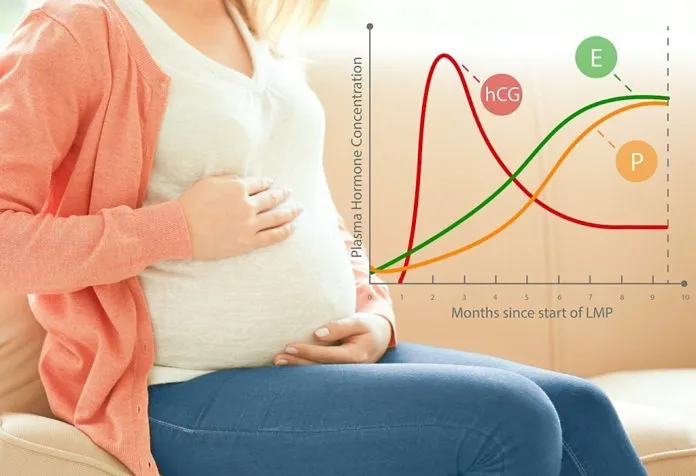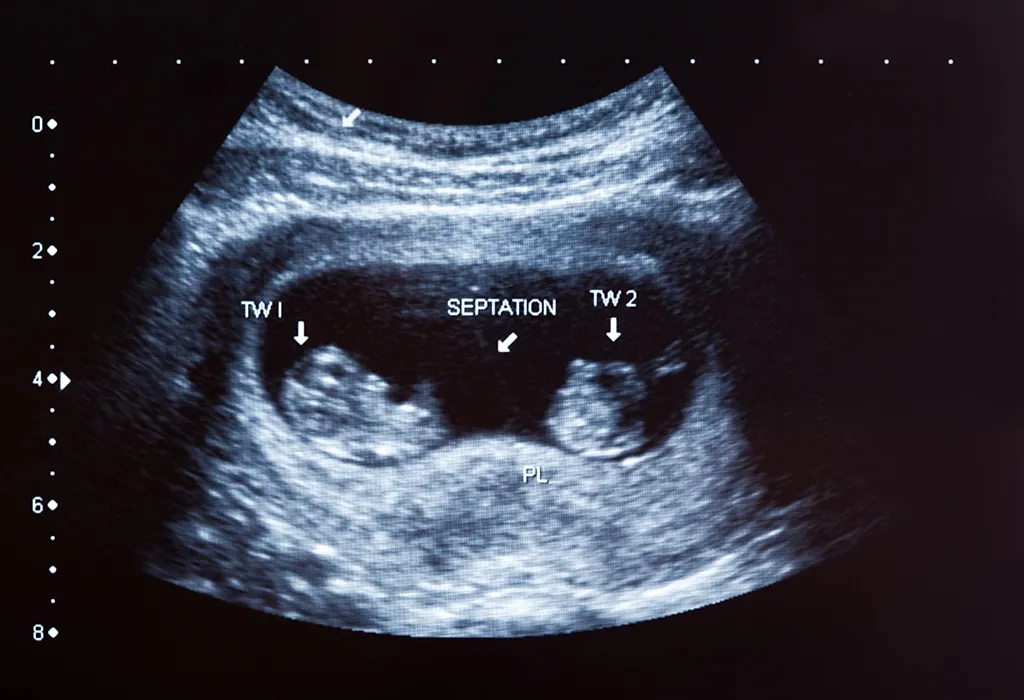Hcg Level Is 5600 Doctors Can See the Baby


At FirstCry Parenting, our aim is to give you the most elevant, accurate and up to date information.
Every article that we publish, confirms to stringent guidelines & involves several levels of reviews, both from our Editorial team & Experts. We welcome your suggestions in making this platform more useful for all our users. Write in to us at parenting.care@firstcry.com

- Connection Between HCG and Twins
- Role of HCG Level in Twin Pregnancy
- When Is HCG Produced?
- Why Is the HCG Level Test Performed?
- Does Taking an HCG Level Test Cause Pain?
- HCG Levels in Single and Twin Pregnancies
- How Often Does HCG Multiply?
- What Can Affect HCG Levels?
- Do High Levels of HCG Mean That You Will Have Twins?
Last Updated on
It is natural for expecting mothers to be full of questions. Since twin or multiple pregnancies are slightly different from single pregnancies, you may be filled with more questions than usual. How does a twin pregnancy differ from a single pregnancy? This and the particulars of how hCG plays a role in it are discussed in the article below.
Connection Between HCG and Twins
HCG or Human Chorionic Gonadotropin is a hormone that helps in detecting pregnancy. For a single baby, the hCG level varies from 70 to 750 mIU/ml (i.e., milli international units per millilitre, which is a unit to measure hormones). High hCG levels can be found for twins during the early stages for pregnancy. The normal hCG levels for twins is 30% to 50% higher than in single pregnancy- somewhere around 200 to 1750 mIU/ml.
The level of hCG may double every 2-3 days in early pregnancy. Blood tests give the best results when taken 7-8 days after ovulation. Most home tests can detect pregnancy 4 to 5 days before the next expected period.
Role of HCG Level in Twin Pregnancy
The body does not produce hCG; rather, it comes purely from the developing baby. Each developing baby secretes some amount of hCG, which doubles in the case of twins. These hormones work collectively to thicken the lining of the uterus, which supports the baby during pregnancy.
Progesterone is a hormone that stimulates the uterus to prepare for pregnancy. It is produced by the corpus luteum (an endocrine gland within the ovary). The purpose of hCG is to keep progesterone levels in the balance until the placenta is developed enough to produce its own progesterone.
When expecting twins, the hCG level increases dramatically, making it faster to detect HCG via blood and urine tests. It doubles every 48 to 72 hours.
The negative result of high hCG levels from the conception twins is that it can lead to more morning sickness during early pregnancy, which means more nausea and vomiting.
When Is HCG Produced?

HCG is produced in the placenta right after implantation. It can be detected in the blood or urine of the woman during the early stages of pregnancy through hCG tests. Since the hormone level may fluctuate before periods, it is best to test after one misses their periods.
Sometimes, high levels of hCG along with the symptoms can also indicate a molar pregnancy where the placenta grows abnormally when the sperm and egg meet during fertilisation. In this phenomenon, the sperm fertilises with an empty egg, leading to growth in placental parts, but no baby. This is known as a complete molar pregnancy. The other type is a partial molar pregnancy, where the mass of the foetus contains both the embryo and abnormal cells that can carry severe birth defects. The healthy embryo, in this case, will end up being consumed by the abnormal mass.
Elevated levels of hCG can also occur due to a gestational trophoblastic tumour, a rare form of cancer. If treated early, it is highly curable. Another reason for high levels of hCG can be the beginning of an ectopic pregnancy where the embryo grows outside the uterus, i.e., in the fallopian tube. It must be treated immediately since the fallopian tubes are not designed to hold a growing embryo.
HCG is often injected in the system for women struggling with infertility to increase their levels of progesterone and increase their chances of pregnancy.
Why Is the HCG Level Test Performed?
An HCG level test is performed for multiple reasons:
- Most commonly performed to confirm pregnancy.
- To identify and later diagnose any abnormality such as ectopic pregnancy, where the uterus develops in the fallopian tube.
- To diagnose a potential miscarriage.
- To identify the levels of the protein PAPP-A in the blood which, when low, increases the chances of the foetus having Down Syndrome.
Does Taking an HCG Level Test Cause Pain?
There are two ways to identify hCG levels in the system – a urine test and a blood test. Except for the pinching sensation of the needle during the blood test, there is no other pain involved. In cases where the individual cannot determine the date of ovulation, it is best to perform either of these tests 10 days after a missed menstrual period.
A urine test or home tests are 97% accurate, provided they are performed correctly. Here, a test sensitive to hCG levels is exposed to the woman's urine either directly or through a cup containing urine. If the strip changes colour, it means the test result is positive.
Here is how you can prepare to take a home urine test for hCG levels:
- Read the instructions of your test kit thoroughly to understand how it works.
- Check the expiration date of the kit. That can also affect your test results.
- Do not drink large amounts of water before taking the urine test, as that may dilute the hCG levels in your urine.
- The most accurate results will be achieved with your first urine of the day.
- Make sure to take the test at least 7-14 days after your missed period for more accurate results.
A qualitative blood test is the most reliable way to identify the presence of hCG in the blood. Apart from this, quantitative blood tests can be conducted to determine the amount of hCG present in the blood. This test can also identify progesterone levels, monitor pregnancies, or correctly diagnose ectopic pregnancies, cancer, and chances of miscarriage.
People having bleeding disorders can experience problems after the blood tests have been performed. There can be swelling in the veins after the blood samples have been taken. However, these are rare cases, and there are very few chances of having problems due to blood tests.
HCG Levels in Single and Twin Pregnancies
HCG levels differ significantly in case of twin or multiple pregnancies when compared to a single pregnancy. Below is a chart that lists the range of hCG levels in different pregnancies.
| HCG Level Chart for Twins and Single Pregnancy | ||
| Days from LMP* | hCG Range for Singleton Pregnancy | hCG Range for Multiple Pregnancy |
| 28 | 9.4-120 | 9.5-120 |
| 33 | 300-600 | 200-1,800 |
| 36 | 1,200-1,800 | 2,400-36,000 |
| 40 | 2,400-4,800 | 8,700-108,000 |
| 45 | 12,000-60,000 | 72,000-180,000 |
| 70 | 96,000-144,000 | 348,000-480,000 |
*LMP = Last Menstrual Period
How Often Does HCG Multiply?

As the embryo keeps growing and developing into a foetus inside the uterus, the amount of HCG released increases rapidly. It doubles approximately after every 2-3 days.
Your first hCG level that comes out in your test is considered the baseline level. This level is important to doctors because they will use this to determine how your pregnancy is coming along, based on the concept of 'doubling time' – the process of the hCG levels increasing during early pregnancy.
As the pregnancy develops, the release of HCG slows down significantly. HCG takes 72 – 96 hours to develop if it is valued at 1200 – 6000 mIU/ml. HCG values above 6000 mIU/ml take four or more days to double. Once the HCG level reaches 1000 – 2000 mIU/ml, a transvaginal ultrasound can be done to see the gestational sac. The growth becomes slower once the HCG level goes above 6000 mIU/ml and remains consistent for the rest of the pregnancy. Doctors can carefully monitor the development of pregnancy by way of quantitative blood tests.
A sonogram can be done after hCG levels reach above 6000 mIU/ml as that provides a clearer depiction of pregnancy. It is also common to have ultrasound screenings when there is a doubt over hCG levels. This can help in assessing and ascertaining the foetal age and growth since blood hCG levels are prone to variations. A transvaginal scan is very common as it is more accurate than an abdominal scan.
Note: Caution must be exercised if hCG levels are low as it can be a sign of a miscarriage, a blighted ovum or an ectopic pregnancy. Hence, regular monitoring must be done to diagnose it.
It is possible to have a healthy baby in spite of low levels of hCG. In such scenarios, the results from an ultrasound after 5 – 6 weeks of gestation are more reliable compared to numbers derived from quantitative hCG test results.
What Can Affect HCG Levels?
HCG levels can be affected by the following reasons:
1. Multiple Pregnancies
Each baby inside the mother's womb releases a normal amount of hCG, which increases the overall hCG level in the body. In cases of twins, triplets or more (commonly experienced by older women), the hCG levels can be double or triple compared to the normal level during single pregnancy.
2. Genetic Defect
Extremely high hCG levels can be caused due to genetic complications during fertilisation. This could indicate that the baby may have Down syndrome. A molar pregnancy can also occur where the placenta overdevelops into an abnormal mass of cells, leading to a mole. This can lead to the death of the baby in the mother's womb which may or may not get detected.
3. Genetic Complications
Low levels of hCG can be experienced due to genetic complications which could lead to ectopic pregnancy or a miscarriage. Pregnancy can be complicated or terminated as a result.
4. Cancer
Cancer in the uterus, stomach, liver, lungs, pancreas and large intestine can also raise hCG levels.
5. Influencing Factors
Pregnancy tests performed either too early in the pregnancy or during the latter half of the day you plan on taking the test can produce false negative pregnancy results. You can get the most accurate results by testing the first urine of the day.
6. Infertility Treatments
Often, hCG is injected to treat infertile women, which again increases the levels of the hormone in the body.
Do High Levels of HCG Mean That You Will Have Twins?
The presence of higher quantities of hCG in urine can be a sign of twins or multiple pregnancies, but this may not always be the case. The level of this hormone may vary from woman to woman or across pregnancies.
HCG levels see a lot of variation in pregnancies and can be an important determinant in recognising a twin pregnancy. However, it is not the sole determinant to indicate that you will be having twins, as an increased hCG level can be the result of several other conditions as well.
Also Read:
IVF and Twins: What Are My Chances?
Signs and Symptoms of Twin Pregnancy
Twin Pregnancy Diet: What to Eat When Pregnant with Twins
How to Stay Healthy During a Twin Pregnancy
Hcg Level Is 5600 Doctors Can See the Baby
Source: https://parenting.firstcry.com/articles/hcg-levels-know-twin-pregnancy-better/
0 Response to "Hcg Level Is 5600 Doctors Can See the Baby"
Post a Comment